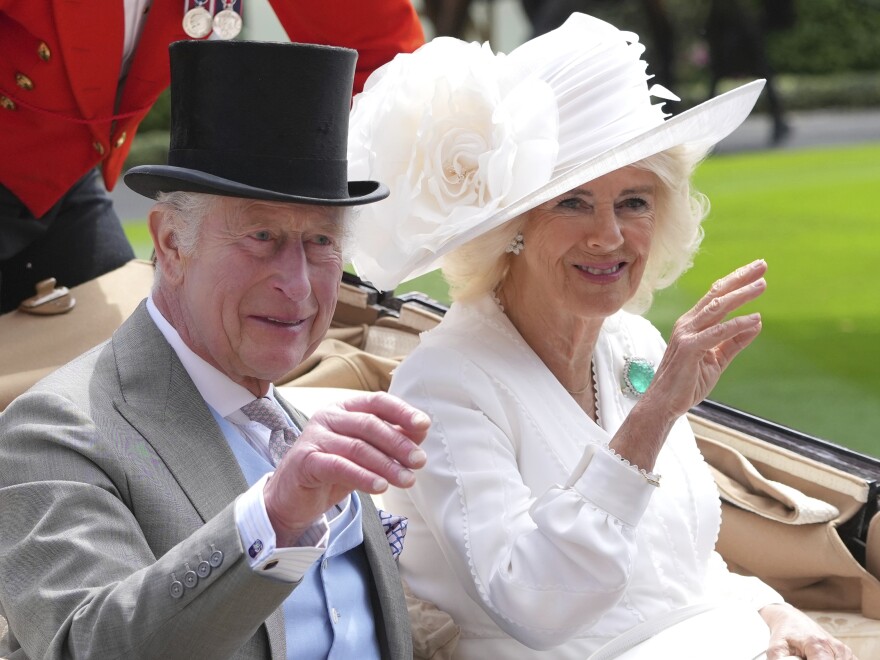In an unexpected twist, King Charles III and Queen Camilla are facing a significant diplomatic setback during their upcoming visit to Australia.
Reports indicate that none of the state premiers have accepted invitations to attend an official reception in Canberra next week.
This snub is being viewed as a clear indication of the growing republican sentiment in Australia, as political leaders prioritize their commitments over royal engagements.
The spokesperson for Western Australia’s Premier, Roger Cook, cited other obligations as the reason for his absence.
However, this dismissal of the royal couple’s invitation raises eyebrows and leads many to question the monarchy’s relevance in modern Australia.
The situation echoes a similar reception the king received during a recent visit to Kenya, where he faced considerable backlash and criticism.
The refusal of top Australian politicians to meet the monarch and his wife underscores a significant shift in the nation’s attitude toward the British Crown.
While the royals had hoped to strengthen ties with their former colonies, the lack of interest from state leaders suggests that many Australians are increasingly keen on establishing their own identity, separate from their colonial past.
The reasons behind the state leaders’ decisions appear to stem from a mix of scheduling conflicts and a desire to focus on pressing domestic issues.
Additionally, concerns over potential protests against the monarchy during the royal visit likely influenced their choices.
By opting out of the reception, these leaders demonstrate their commitment to addressing local matters rather than participating in ceremonial events that may not resonate with their constituents.
Public reaction to the royal visit has been mixed, sparking a lively debate among Australians.
Some citizens express excitement about the royal couple’s arrival, while others voice skepticism regarding the monarchy’s role in contemporary society.
The decision by state leaders to decline the invitation further fuels discussions about the necessity of such royal engagements, highlighting the complexities of Australia’s evolving national identity.
The absence of key political figures at the reception could diminish the event’s prestige, impacting the overall engagement the royal couple might expect from local dignitaries.
This situation reflects the sensitive nature of Australia’s relationship with the monarchy, as the country grapples with its historical ties and the implications of its colonial past.
Political analyst Murad Mirali has weighed in on the situation, suggesting that the snub signifies a broader shift in sentiment among Australians regarding their connection to the monarchy.
He argues that the refusal to attend the reception sends a strong message about the desire for greater autonomy and a reassessment of historical ties to the British Crown.
The implications of the state leaders’ decision extend beyond this particular event, indicating a potential reevaluation of Australia’s relationship with the monarchy.
As public sentiment leans towards independence, there are growing calls for a reconsideration of the role the British royal family plays in Australian affairs.
Unlike previous royal visits that were met with enthusiasm and eagerness from state leaders, the current response reflects a more cautious approach.
Politicians seem intent on balancing respect for the royal presence with the need to maintain a sense of distance, avoiding the perception of blind adoration.
Media coverage of this unfolding drama will undoubtedly shape public perception.
How journalists frame the narrative surrounding the leaders’ decisions and the royal couple’s visit will influence how Australians view the monarchy’s role.
The media’s portrayal can either validate the leaders’ choices or cast them in a negative light.
As Australia navigates this pivotal moment, discussions about its constitutional status and the future of the monarchy are gaining renewed attention.
The unanimous decline of invitations from state leaders has sparked conversations about whether it’s time for Australia to sever ties with the British Crown entirely.
With the royal family’s future relationship with Australia hanging in the balance, the implications of this snub could signal a turning point.
While some may see it as a mere blip in history, others believe it reflects deeper societal shifts that could lead to a more autonomous future for the nation.
The next steps taken by both the royal family and the Australian government will be crucial in determining the long-term impact of this incident.
Related Stories

